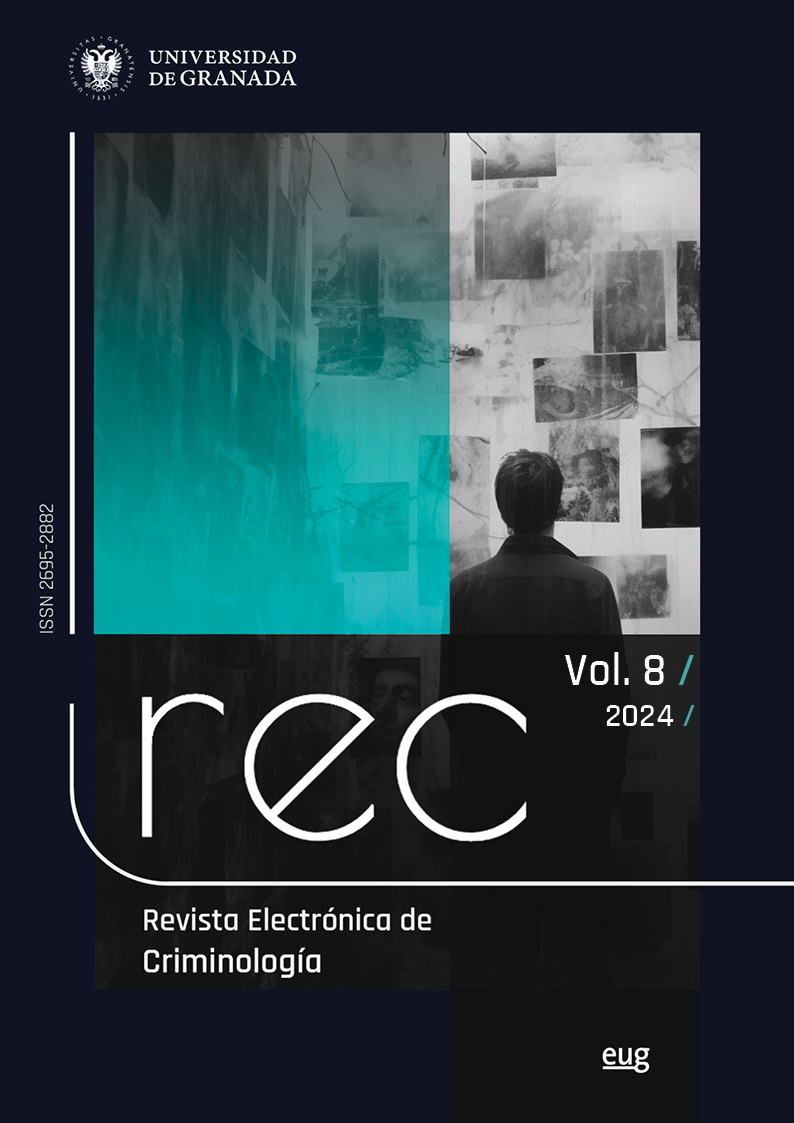The economic crimes prosecutor's office and the prosecution of tax crime: towards a restorative logic?
DOI:
https://doi.org/10.30827/rec.8.33151Keywords:
Public prosecutor , Economic crime , Tax fraud , Plea guiltyAbstract
The criminological literature on white-collar criminality has favoured the analysis of the individual instead of the control agencies prosecuting them. An exception to this dominant trend was the North American literature of the 1980s, when several criminologists began to empirically research the work of federal attorneys in prosecuting economic and corporate crime. This article recovers this criminological tradition to investigate a very littleknown institution in Spain: the Prosecutor's Office of the area specialized in Economic Crimes. The contribution of this article is to explain the origin of this Prosecutor's Office, its role in the disposition of tax fraud as one of the most frequent economic crimes, and its role in negotiating plea agreements with the accused. Finally, this article reflects on the restorative logic underpinning the criminal prosecution of tax fraud in Spain, namely the recovery of evaded taxes.
References
AYERS, K. & FRANK, J., (1987), “Deciding to prosecute white-collar crime: a national survey of State Attorneys General”. Justice Quarterly, 4(3): 425-440.
BENSON, M., MAAKESTAD, W., CULLEN, F. y GEIS, G. (1988), “District Attorneys and Corporate Crime: Surveying Prosecutorial Gatekeepers”, Criminology, 26(3): 505-518.
BENSON, M., CULLEN, F., y MAAKESTAD, W. (1990), “Local Prosecutors and Corporate Crime”, Crime & Delinquency, 36(3): 356-372.
BONSHOMS GUZMÁN, J. (2024), “Inspectores y Fiscales: Investigar y perseguir la defraudación tributaria en España”, InDret 4.2024, pp. 262-280.
BOX, S. (1983), Power, crime and mystification, Londres, Tavistock Publications Ltd. Braithwaite, J. (1985), “White Collar Crime”, Annual Review of Sociology, 1985, Vol. 11, pp. 4.
BUTTON M., HOCK B. y SHEPERD D. (2022), Economic Crime: From Conception to Response. Londres: Routledge.
COCA-VILA, I. (2020), “Protección de las haciendas públicas y la seguridad social”. En Silva Sánchez (Dir.) Lecciones de Derecho Penal Económico y de la Empresa, Barcelona, Atelier, pp. 571-638.
FITOR MIRÓ, J. C. (2023), Delito fiscal. Un análisis criminológico, Valencia, Tirant lo Blanch.
GÜERRI, C. (2015), “La especialización de la fiscalía en materia de delitos de odio y discriminación.” InDret Criminologia, 1, 1- 33.
GURNEY, J. (1985), “Factors influencing the decision to prosecute economic crime”, Criminology, 23(4), pp 609-628.
KATZ, J. (1979), “Legality and equality: Plea bargaining in the prosecution of white-collar and common crimes”. Law & Society Review, 13(2): 431-459.
KATZ, J. (1980), “The social movement against white collar crime”, en Egon Bittner and Sheldon Messinger (Eds.): Criminology Review Yearbook. Vol. 2. Beverly Hills, California: Sage, pp. 161-184.
KITSUSE, J. & CICOUREL, A. (1963), “A Note on the Uses of Official Statistics”, Social Problems, 11(2): pp. 131-139.
LARRAURI, E. (1991), La herencia de la criminología crítica. Madrid: Siglo XXI.
LARRAURI, E. y ROVIRA M. (2021), “Publicidad, solicitud y cancelación de los antecedentes penales en los tribunales españoles”. Revista Electrónica de Ciencia Penal y Criminología, 23-01, pp. 1-32.
MÉNDEZ CORTEGANO, I. (2009), “El papel de la Agencia Tributaria en el control del fraude como herramienta contra la corrupción”, Boletín Criminológico nº117, noviembrediciembre 2009, pp. 1-4.
REBOLLO VARGAS, R. y CASAS HERVILLA, J. (2014), “El proceso penal y la investigación de la delincuencia económica”. En: GARCÍA ARÁN (Dir.) La delincuencia económica: prevenir y sancionar, Valencia, Tirant lo Blanch.
SPIRE, A. y WEIDENFELD, K. (2016), “La tolérance des juges à la fraude fiscale: un inconscient d’institution ”. Criminologie, 49, nº1, 79-98.
SHOVER N. y GRABOSKY P. (2010), “White-collar crime and the Great Recession”, Criminology & Public Policy, 9 nº3: 429- 433.
SHOVER N., HOCHSTETLER A. (2006), Choosing White-Collar Crime, New York, Cambridge University Press.
SUTHERLAND, E. (1940), “White-Collar Criminality”, American Sociological Review, 5(1): 1-12.
VARONA GÓMEZ, D. (2021), “La cara oculta de la justicia penal: la conformidad del acusado. A propósito de la STS 15-4- 2021”, InDret Criminología, 2, pp. VII-IX.
VARONA GÓMEZ, D. (2022), “El Ministerio Fiscal en la justicia penal de adultos: el poder punitivo en la sombra”, en Medina Ariza, Juanjo (Coord.), Instituciones de Control del Delito, Madrid, Dykinson, pp. 135-147. La Fiscalía de Delitos Económicos y la persecución del delito fiscal
VARONA GÓMEZ, D., KEMP, S. y BENÍTEZ, O. (2022), “La conformidad en España: predictores e impacto de la penalidad”. InDret, 1, pp. 307-336.
Downloads
Published
How to Cite
Issue
Section
License
Esta obra está bajo una licencia internacional Creative Commons Atribución 4.0.












